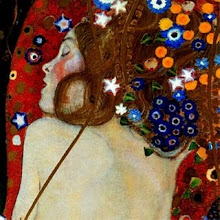Let's try this again, shall we Blogger? (also known as @#%$!@)
I have this up on Bright Nepenthe's Facebook page but realize many of my readers are seldom, if ever, on Facebook. So I wanted to share it, and Sunday is a great day to do so because you will have time to read this excellent interactive presentation.
Although it's the seeming antithesis of a Sunday Happy, your awareness of this issue makes for another knowledgeable voice, another light, in the dark world of slavery vs. human rights.
Mauritania (from Wikipedia)
Mauritania officially abolished slavery in 1981 (yes, you're reading that right... 1981), didn't criminalize it until 2007, but it still thrives there, right now, today, in 2012. Many slaves do not even know that their situation is illegal according to their own country's laws, or have a concept of their own basic human rights. The slave population is kept, by design, largely isolated and illiterate, in the dark about their situation. Some slaves have literally been brainwashed, in a kind of Stockholm Syndrome, believing the families that "own" them are really their own family, in spite of their being beaten, raped, exploited at the hands of this 'family'. Contact between freed slaves and present slaves is extremely risky for both and so the flow of information, and therefore of liberation, is slow.
“No one ever told me I was free. I don't know what that would be like.”
— Yebawa Ould Keihel, a slave freed by his master
This moving presentation brings to the reader and listener the stories and voices of former slaves and slave owners, now united in seeking true abolition of slavery in their country. It paints an inspirational picture of the formerly repressed fighting to help those who still suffer.
SOS Slaves, a group of Mauritanian abolitionists formed by a slave and a former slave owner, want Americans to be more aware of their enslaved countrymen's plight and hope that this awareness will eventually translate into international pressure on the Mauritanian government and social structure. Mauritania has been long been decried by Amnesty International and Human Rights Watch for human rights violations. Racism in Mauritania comprises a complex interplay between white Moors, black Moors, black African tribespeople like the Soninke, Fula and Woloof, and the so-called Haratine, which translates ironically as "freed slave" when in actuality they are present, or 'freed' slaves, still caught up in the cycle of abuse, discrimination and racism.
Reading their stories, and about Mauritania's present social reality, fulfills part of their hopes: even your awareness increases their chance for change.
As Boubacar Messouad says:
"Slavery does not belong only to the slave or former slave. It is a struggle that belongs to every man having will, courage and strength."
























No comments:
Post a Comment